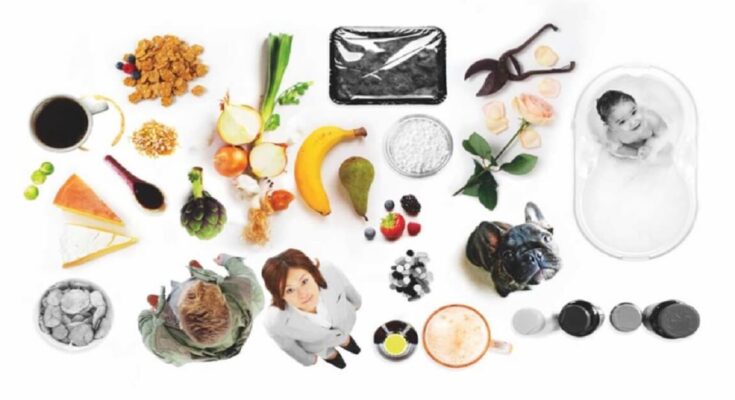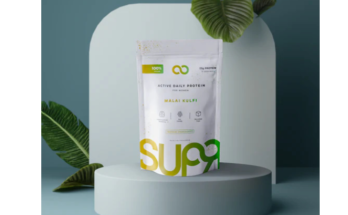The human gut is an intricate ecosystem hosting trillions of microorganisms, collectively referred to as the gut microbiome. This ecosystem plays a pivotal role in our health and well-being, influencing digestion, immunity, metabolism, and even mental health. Therefore, understanding how to improve gut bacteria through science has become a subject of growing interest and research. In this article, we’ll explore various methods and strategies to enhance your gut bacteria for optimal health.
What is Gut Bacteria?
Gut bacteria, often referred to as the gut microbiome, encompass a complex array of microorganisms residing within the digestive tract. This intricate ecosystem comprises not only bacteria but also viruses and fungi. However, it’s worth noting that the predominant constituents are bacteria, and they hold pivotal significance in a wide array of physiological functions within the body.
Composition of the Gut Microbiome
The composition of an individual’s gut microbiome is highly unique, and influenced by genetics, diet, environment, and lifestyle. However, there are common bacterial species that are frequently found in the human gut, such as Bacteroides, Firmicutes, and Escherichia coli.
Methods for Improving Gut Bacteria
There are various science-backed strategies for enhancing gut bacteria, and they can be categorized into dietary changes, lifestyle modifications, medications, and emerging scientific approaches.
Dietary Fiber
Consuming a diet rich in dietary fibre is not just about promoting regular bowel movements. It’s also a crucial strategy for nurturing your gut bacteria. Fibre, found in fruits, vegetables, whole grains, and legumes, serves as the favourite meal for your beneficial gut bacteria. What’s interesting is that fibre, while indigestible by your body, is fermented by these microbes, providing them with the nourishment they need to thrive. As they break down the fibre, they produce short-chain fatty acids, such as butyrate, which play a pivotal role in gut health. These compounds help maintain the integrity of the gut lining and reduce inflammation, contributing to a healthy gut environment.
Diversify Your Diet
Just as a varied diet offers a wide spectrum of nutrients to nourish your body, it also exposes your gut to a broader range of substrates, leading to a more diverse microbiome. This diversity is essential because different types of bacteria thrive on different types of nutrients. For instance, some bacteria prefer fiber-rich foods, while others thrive on proteins or fats. A diverse microbiome is often associated with better overall health, as it’s better equipped to adapt to changes in your diet and environment. So, aim to include a colorful variety of foods in your daily meals, from leafy greens and cruciferous vegetables to lean proteins and healthy fats.
Polyphenol-Rich Foods
Polyphenols are natural compounds found in various plant-based foods and beverages, including berries, dark chocolate, red wine, and green tea. These compounds not only offer potential health benefits for you but also support the growth of beneficial gut bacteria. Polyphenols have antioxidant properties and have been linked to reduced inflammation in the gut. Additionally, some polyphenols serve as prebiotics, encouraging the proliferation of beneficial bacteria like Lactobacillus and Bifidobacterium. Including polyphenol-rich foods in your diet can not only please your taste buds but also contribute to a healthier and more balanced gut microbiome.
Avoid Excessive Use of Antibiotics
Antibiotics have revolutionized medicine and saved countless lives by combating bacterial infections. However, it’s important to use them judiciously. Antibiotics can disrupt the balance of gut bacteria by killing not only harmful bacteria but also beneficial ones. It’s crucial to use antibiotics only when prescribed by a healthcare professional and follow the prescribed course. Doing so helps minimize the collateral damage to your gut microbiome and ensures that it can recover its balance more effectively once the treatment is completed.
Reduce Sugar and Processed Foods
High sugar and heavily processed foods are known to negatively impact the gut microbiome. These foods can lead to the overgrowth of harmful bacteria and reduce the diversity of beneficial ones. Reducing or eliminating these items from your diet is a proactive step toward promoting a healthier gut. By doing so, you create an environment in your gut that’s more conducive to the growth of beneficial bacteria, which can have a positive ripple effect on your overall health.
Limit Alcohol and Smoking
Excessive alcohol consumption and smoking can have detrimental effects on the gut microbiome. Alcohol can lead to imbalances in gut bacteria and contribute to inflammation. Smoking, on the other hand, has been associated with reduced microbial diversity in the gut. Reducing or quitting these habits can be beneficial not only for your gut but also for your overall well-being.
Fecal Microbiota Transplant (FMT)
In certain medical conditions, such as recurrent Clostridium difficile infections, FMT becomes a more extreme but highly effective option. This procedure involves transferring faecal matter from a healthy donor to a patient with a disrupted gut microbiome. By doing so, it helps restore a healthy balance of gut bacteria. FMT is considered when other treatments have failed, and it holds promise in offering relief to individuals suffering from severe gut-related issues. It’s a remarkable example of how scientific advancements are being harnessed to restore the balance in the gut microbiome for those in dire need.
Future Directions in Gut Bacteria Research
Gut microbiome research is rapidly advancing, with promising developments on the horizon. Personalized microbiome therapies are becoming more accessible, allowing individuals to tailor strategies based on their unique microbiome composition. Understanding the gut microbiome’s role in disease prevention is leading to innovative preventive strategies and early interventions. Additionally, research into environmental and social factors, such as pollution and urbanization, is shedding light on ways to promote healthier urban living. These insights are opening doors to a more customized and proactive approach to gut health and overall well-being.
Conclusion
Improving gut bacteria through science is a multidisciplinary field with tremendous potential for enhancing human health. By adopting dietary changes, and lifestyle modifications, and considering emerging scientific approaches, we can strive to maintain a diverse and balanced gut microbiome, contributing to our overall well-being. The future of gut bacteria research promises exciting breakthroughs that will enable us to harness the power of our microbiome for improved health and vitality.




